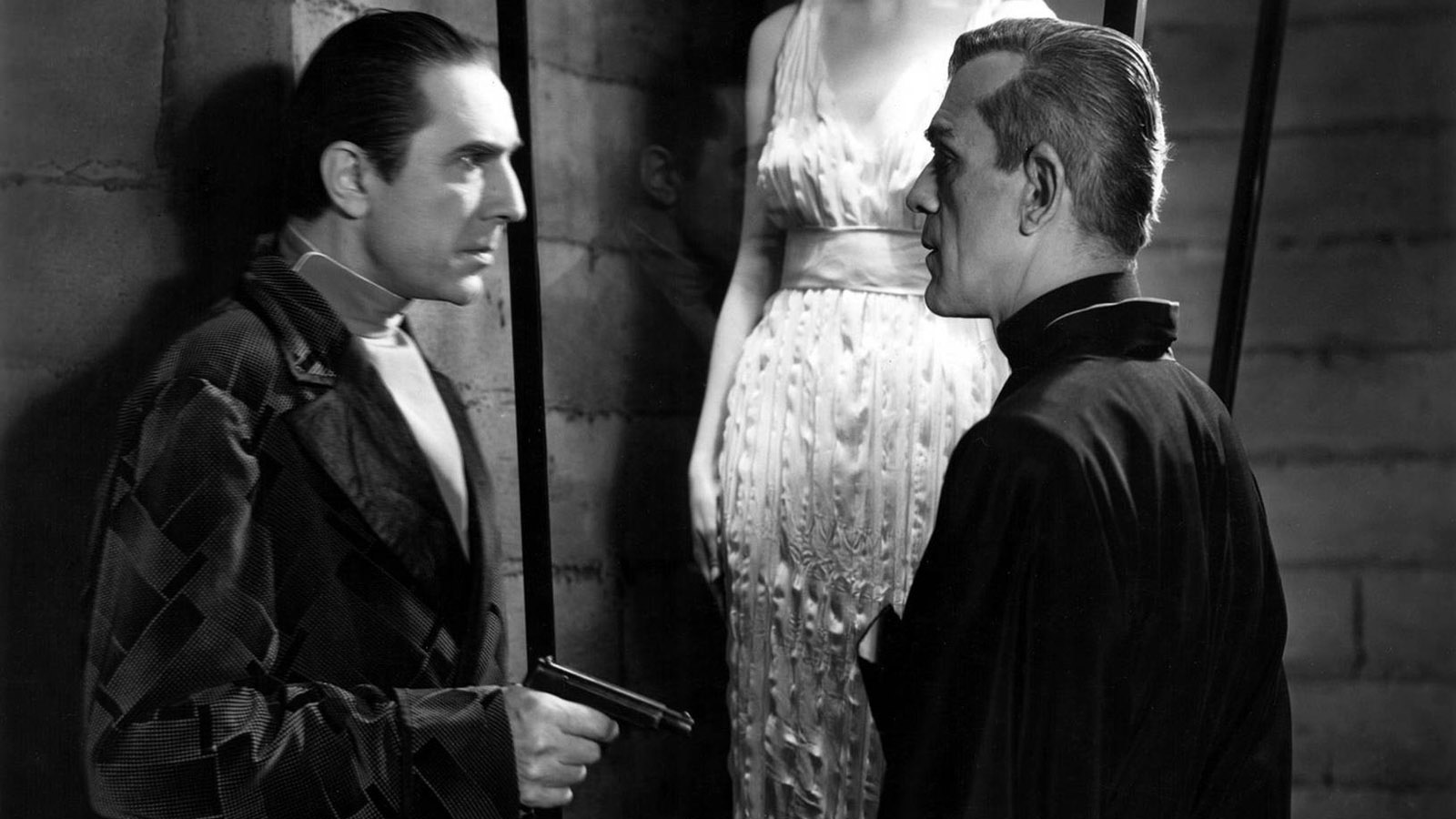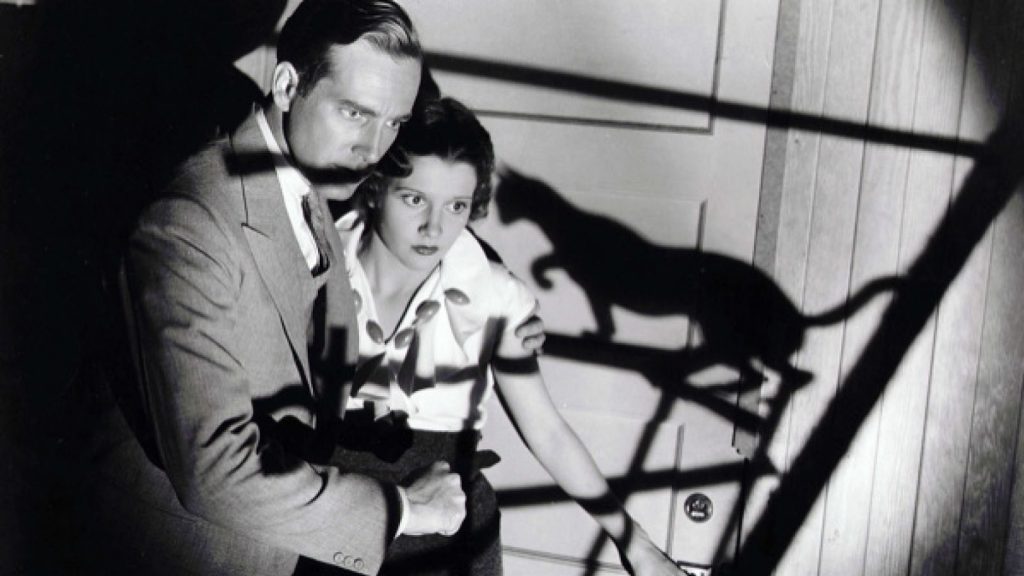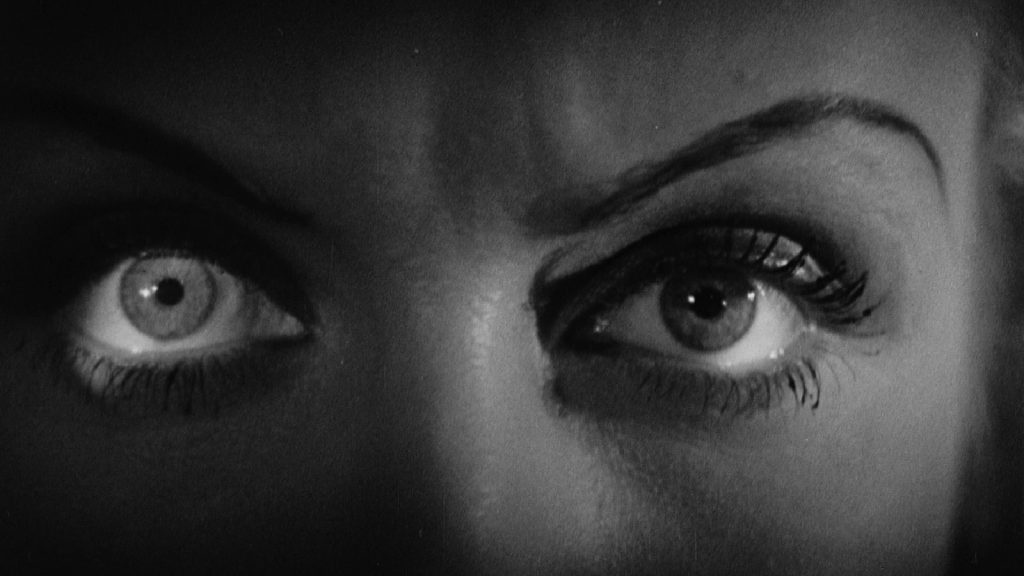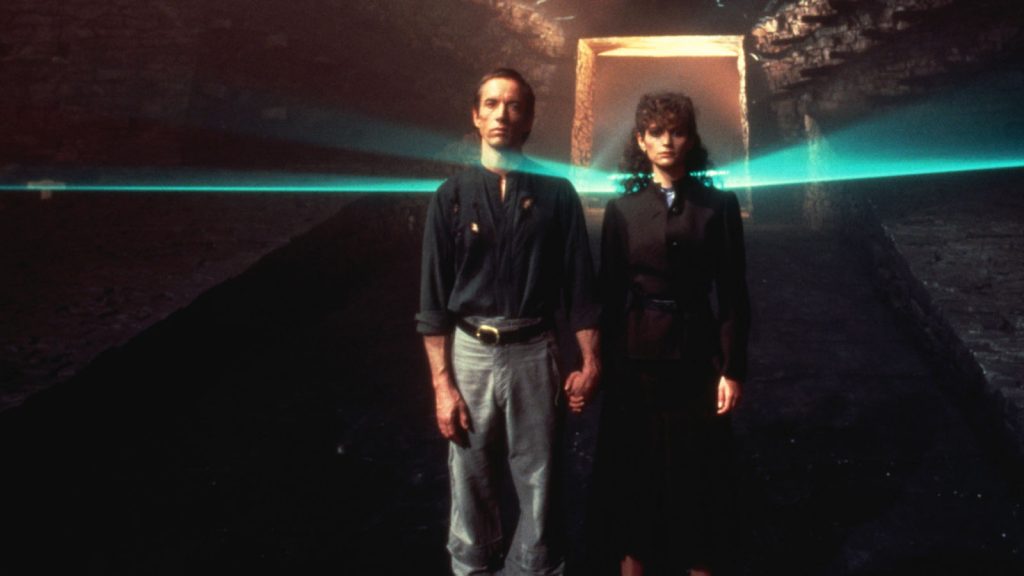
A paragon of queer perversity, Edgar G. Ulmer’s unfathomable Universal horror hit gave major stars Bela Lugosi and Boris Karloff two of their greatest roles. In the first of many films together, the erstwhile Dracula and Frankenstein’s monster play a pair of intensely bonded frenemies locked in an epic sadomasochistic pas de deux. Pushing the vogue for horror to new heights of pleasurable sickness, The Black Cat offers a parade of dreamlike imagery and violent torture that is practically unparalleled. Made and released in the sweet spot right before Joseph Breen was appointed to oversee the Motion Picture Producers and Distributors of America’s production code and began restrictively enforcing it for the first time, the film is a work of decadence and immorality, enfolded in the same kind of vaguely articulated sexual deviance that marked such other delectably “wrong” films as Dr. Jekyll and Mr. Hyde (1931), The Old Dark House (1932), and Island of Lost Souls (1932).
The Black Cat is initially told from the point of view of a pair of dull hetero newlyweds named Joan and Peter (played by Julie Bishop and the wanly handsome James Whale discovery David Manners), who meet a Hungarian psychiatrist named Dr. Vitus Werdegast (Lugosi) while traveling by train through Budapest during their honeymoon. Werdegast is en route to pay an unexpected visit to an Austrian architect named Hjalmar Poelzig (Karloff), whom he claims is a dear old friend from World War I. Stranded on a desolate country road not far from Poelzig’s foreboding mansion, the three travelers ultimately show up at his front door; Poelzig turns out to be something of an aesthete, a robe-wearing dandy whose austere, gray castle is tricked out in ominous, ’30s-mod architectural flourishes and devilish designs, most alarmingly—and unforgettably—a hall of dead women eerily floating in glass cages. One of them, we learn, is Werdegast’s former wife, Karen. With mounting tension, the film reveals Werdegast’s reason for visiting: to accuse Poelzig of personal war crimes, including betraying Werdegast to the Russians, who sent him to a Siberian labor camp for more than a decade, and subsequently stealing and killing Karen. Werdegast is thus on a mission of vengeance, while the hapless Joan and Peter find themselves caught in the middle of the two men’s dance of death.
Very loosely based on Edgar Allan Poe’s 1843 short story of the same name, The Black Cat is a tale of extreme battle scars that allows its two stars to indulge in some of their most grotesque gamesmanship. It is most remembered for its climax, which retains a hearty dose of Poe-inspired sadism, dramatizing Werdegast’s ultimate revenge, captured in shocking silhouette: strung up by his wrists and stripped to the waist, Karloff’s character is skinned alive by Lugosi’s. Ulmer, who would go on to direct the scrappy and sensational low-budget 1945 noir Detour, knew a thing or two about shaking up an audience. And they responded in droves: The Black Cat was enormously popular, the biggest box-office smash of the year for its studio, which had become a financial powerhouse largely due to its cycle of industry-changing horror hits. 🩸

is Editorial Director at Museum of the Moving Image; cofounder and editor of the online film magazine Reverse Shot, a publication of MoMI; a longtime contributor to The Criterion Collection, where he programs the Criterion Channel series “Queersighted”; and the author of Films of Endearment (Hanover Square Press, 2021).
One of the most unheralded of Universal’s 1930s horror films, though perhaps the purest example of the form during that era...
BY LAURA KERN | November 13, 2024
Love—or what we call love—produces a lot of lip service, which isn’t a reference to kissing. We proclaim our dedication to another, though in reality—if our typical future behavior is any indication—we might as well be saying...
BY COLIN FLEMING | February 13, 2025
A place where no actual blood was spilled—at least to my knowledge—my grandmother’s house proved strangely even sagely—sanguinary as it pertained to an important development in my life.
BY COLIN FLEMING | June 19, 2024

This pre-Code offering packs a lot of story into its typically brisk running time, with several plot threads weaving together a (not always successful) tapestry of spooky and criminal doings.
READ MORE >
BY ANN OLSSON | Month 00, 2021

In what could be the fastest-resulting rape revenge movie, a drunken lout brutally forces himself on Ida, the young woman who doesn't return his affections, during a party over Labor Day.
READ MORE >
BY LAURA KERN | Month 00, 2021

Beast is a lot of movies in one package - fractured fairy tale, belated-coming-of-age story, psychological drama, regional horror film - but above all it's a calling card for its leading lady, Jessie Buckley.
READ MORE >
BY LAURA KERN | Month 00, 2021